How to Find the Right Sauce Packing Machine Price
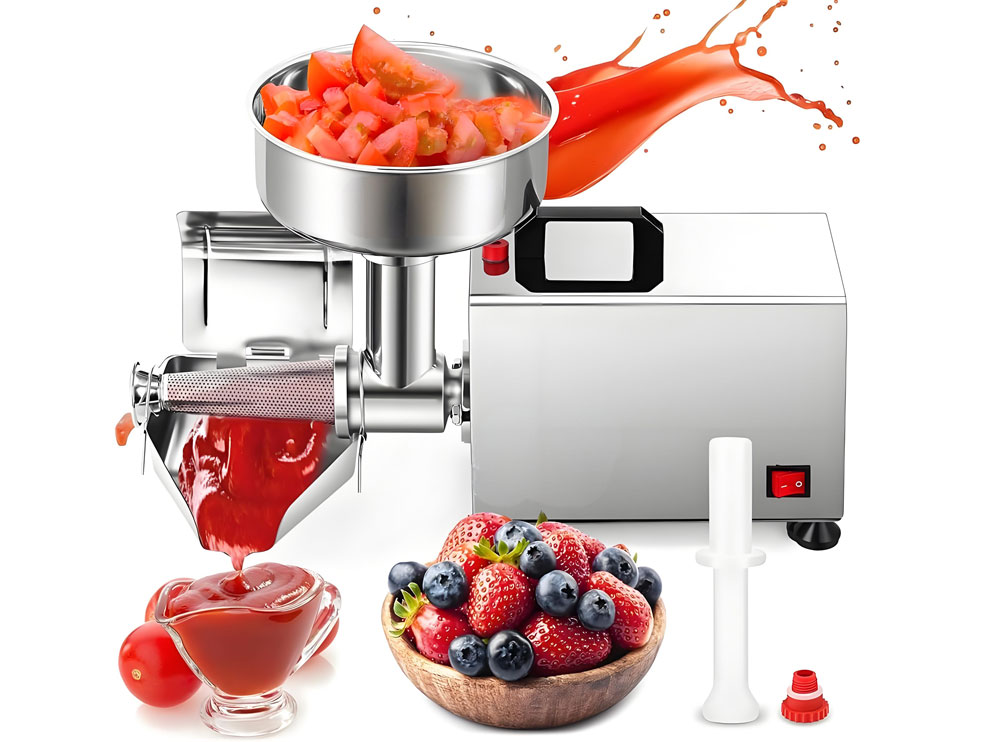
Introduction to Sauce Packing Machine Price
When it comes to streamlining the production of sauces, choosing the right packing machine is a key consideration for businesses aiming to enhance efficiency and reduce costs. The price of a sauce packing machine plays a crucial role in the decision-making process, but it’s not just about finding the lowest cost solution. A deeper understanding of what goes into pricing a sauce packing machine can help you make an informed investment that aligns with your long-term goals.
What is a Sauce Packing Machine?
A sauce packing machine is a specialized piece of equipment used to package sauces into containers like bottles, jars, or pouches. The machine automates the process of filling, sealing, and sometimes labeling the product, ensuring high precision and consistency in each batch. It can be customized for different types of sauces, from thick and chunky to runny and liquid. These machines are vital for mass production lines and help reduce labor costs while maintaining high levels of hygiene and efficiency.
The Role of Sauce Packing Machines in Modern Food Production
In today’s fast-paced food industry, a sauce packing machine is not just a luxury—it’s a necessity. Automation in sauce production increases the speed of packing, ensuring that large quantities of products are packed efficiently without sacrificing quality. With rising consumer demand for consistent and high-quality food products, these machines help businesses scale production without compromising on precision, hygiene, or taste.
Why the Price of Sauce Packing Machines Varies
Several factors contribute to the wide variation in the price of sauce packing machines. From the type of machine to its features and production capacity, each element affects the cost. A basic manual machine may cost considerably less than a fully automated model with advanced technology. Understanding these variables is key to finding a machine that fits both your operational needs and budget.
Factors That Affect Sauce Packing Machine Pricing
Machine Type: Semi-Automatic vs. Fully Automatic
Semi-automatic machines require manual intervention during certain stages of the packing process, making them more affordable but less efficient for high-volume production. Fully automatic machines, on the other hand, offer hands-off operation and can significantly boost production speed, but they come with a higher price tag due to the advanced technology they employ.
Capacity and Speed: How Production Volume Influences Cost
The production capacity of a sauce packing machine directly impacts its price. Higher-capacity machines can pack a larger volume of sauce per minute, making them ideal for businesses with high production demands. As capacity and speed increase, so does the cost, but the investment is often justified by the increase in efficiency and the ability to meet market demand.
Material and Build Quality: Impact on the Price Tag
The quality of materials used in the construction of a sauce packing machine plays a crucial role in its durability and price. Machines made from stainless steel, for example, tend to cost more upfront but offer longer lifespans and better hygiene compliance, which are crucial in food production.
Technology and Automation: The High-Tech Factor
Advanced automation and technology features, such as programmable controls, touch-screen interfaces, and smart sensors, drive up the price of sauce packing machines. While these high-tech features may add to the cost, they also bring greater precision, reduced human error, and increased efficiency to the packing process.
Brand Reputation and Manufacturer Experience
Established manufacturers with a strong reputation for reliability and customer support may charge more for their machines, but they often provide better warranty options, after-sales support, and assurance of long-term durability. The expertise of the manufacturer can significantly affect the pricing of the machine.
Key Features Influencing Sauce Packing Machine Price
Adjustable Fill Speeds and Capacity Controls
Machines with adjustable fill speeds and customizable capacity settings allow businesses to fine-tune their production process, making them a versatile choice for different sauce types and packaging needs. This flexibility comes at a price but can improve overall production efficiency.
Advanced Control Systems and User Interface
Sophisticated control systems that allow users to adjust settings, monitor production, and troubleshoot via a user-friendly interface will increase the cost of the machine. These systems make the machines easier to operate, especially in large-scale production environments.
Packaging Types: Bottles, Pouches, and Jars
Some machines are designed specifically for certain types of packaging. If your production line requires the ability to pack sauces in bottles, jars, and pouches, you’ll need a machine that supports these variations. Machines with this kind of adaptability often come at a higher cost.
Energy Efficiency and Environmental Impact
Energy-efficient machines are designed to use less electricity, which can reduce operating costs over time. While these machines may come with a higher initial price tag, their long-term energy savings make them a worthwhile investment.
Customization Options: Tailored Machines vs. Standard Models
Customization options, such as machines designed specifically for a certain sauce recipe or packaging format, often come at a premium price. However, these machines can help businesses achieve the highest level of efficiency and precision tailored to their specific needs.
Cost Considerations for Different Types of Sauce Packing Machines
Piston Fillers vs. Gravity Fillers: Which One Offers Better Value?
Piston fillers are ideal for thick sauces, such as ketchup or mustard, as they provide high accuracy and control over the filling process. Gravity fillers, on the other hand, are better suited for thin sauces, offering a more cost-effective solution but with slightly less control over fill volume. The choice between these two options depends on the type of sauce and the desired production speed.
Vacuum Fillers and Overflow Fillers: Are They Worth the Price?
Vacuum fillers reduce product loss during the filling process by creating a vacuum to help the sauce flow smoothly into containers. Overflow fillers ensure that every bottle or jar receives an identical amount of sauce, making them ideal for achieving consistency. Both options can be pricier but may be necessary for businesses aiming for high precision and minimal waste.
Choosing Between Manual and Automatic Features
While manual sauce packing machines come at a lower price, fully automatic machines bring unparalleled convenience and efficiency. Depending on your production volume and budget, it’s essential to weigh the benefits of automation against the initial cost.
Additional Costs Beyond Initial Purchase Price
Installation and Setup Costs
After purchasing a sauce packing machine, businesses must consider installation and setup costs. Depending on the complexity of the machine, this can involve adjustments, calibration, and sometimes structural changes to your facility to accommodate the new equipment.
Training Costs for Operating the Machine
Operators need to be trained on the proper use of the machine to ensure optimal performance. Training costs should be factored into the overall investment, especially for complex machines that require specialized knowledge to run efficiently.
Maintenance and Consumables Over Time
Ongoing maintenance and the cost of consumables (such as seals, filters, and lubricants) should also be considered. Well-maintained machines can last longer, but they do incur maintenance costs over time.
Understanding Return on Investment (ROI) for Sauce Packing Machines
How to Calculate ROI for Sauce Packing Equipment
Return on investment is a key metric when evaluating the cost-effectiveness of a sauce packing machine. To calculate ROI, consider the initial cost of the machine, the expected increase in production efficiency, and the reduction in labor and operational costs over time.
How Production Efficiency Affects ROI
The higher the efficiency of your packing machine, the greater the ROI. A machine that can handle a higher output with less downtime will directly impact your bottom line by increasing your capacity to meet demand and reducing wasted time and product.
The Importance of Long-Term Maintenance in ROI
Regular maintenance helps prolong the life of your sauce packing machine, minimizing the need for costly repairs and replacements. Incorporating a maintenance schedule into your ROI calculation is vital for understanding the long-term cost savings.
Comparing Prices of Different Sauce Packing Machines
How to Compare Prices from Different Suppliers
When comparing prices from various suppliers, consider the total cost of ownership. Don’t just look at the initial price but also factor in the quality, reliability, warranty, after-sales support, and expected lifespan of the machine.
Understanding Price vs. Value in Sauce Packing Machines
Price doesn’t always equate to value. Sometimes a higher-priced machine offers features, efficiency, and longevity that far outweigh the initial investment. Understanding the balance between price and value is key to making the right choice.
How the Right Sauce Packing Machine Can Save You Money in the Long Run
Investing in a high-quality sauce packing machine that suits your needs can save you money over time by reducing labor costs, minimizing waste, and increasing production efficiency. A well-chosen machine can boost your profitability and reduce operational costs.
Tips for Negotiating the Best Price on a Sauce Packing Machine
How to Leverage Volume Orders for Better Pricing
If you’re purchasing multiple machines or need to upgrade your production line, negotiating volume pricing with suppliers can help secure better deals. Bulk orders often come with discounts, making this a smart way to reduce overall costs.
Is Leasing a Sauce Packing Machine a Better Option?
Leasing a sauce packing machine offers a lower upfront cost, making it easier to manage cash flow. However, leased machines can be more expensive over time, and the option to buy at the end of the lease should be carefully considered.
The Pros and Cons of Leasing vs. Buying
How Leasing Can Lower Initial Costs
Leasing allows businesses to get a high-quality machine without the hefty upfront investment. For businesses with limited capital, leasing is an attractive option that helps maintain operational flexibility.
The Pros and Cons of Buying a Sauce Packing Machine
Buying provides full ownership and control over the machine, but it requires a larger initial investment. For long-term use, purchasing is often more cost-effective than leasing.
How to Choose the Best Sauce Packing Machine for Your Budget
Assessing Your Business Needs and Budget Constraints
Consider your production capacity, the type of sauce you produce, and how much you’re willing to invest. Finding a balance between your business requirements and your budget will help you select the best machine for your needs.
Determining the Right Machine for Your Production Volume
The size and complexity of the machine should match your production volume. High-volume businesses may require a fully automated system, while smaller operations can benefit from semi-automatic options.
How to Balance Quality and Cost in Sauce Packing Machines
Look for a machine that offers reliable performance, durability, and the features you need, without overspending. Investing in quality doesn’t always mean buying the most expensive option.
The Importance of Supplier Reputation in Pricing
What to Look for in a Reliable Sauce Packing Machine Supplier
When choosing a supplier, consider factors such as reputation, customer service, and the availability of spare parts and after-sales support. A trusted supplier ensures a smoother purchasing experience and better long-term value.
Conclusion: How to Get the Best Value for Your Sauce Packing Machine Investment
The price of a sauce packing machine is an important consideration, but it should not be the sole deciding factor. By understanding the various factors that affect pricing and considering the total cost of ownership, you can make an informed decision that will improve efficiency, reduce costs, and ensure your investment provides lasting value.
Frequently Asked Questions (FAQs):Sauce Packing Machine Price
1. What is the average price range for a sauce packing machine?
The price of a sauce packing machine can vary significantly depending on the type, capacity, and features. Semi-automatic machines typically cost between $5,000 to $15,000, while fully automatic machines can range from $20,000 to over $100,000 for high-capacity models. Customizations, advanced technology, and additional features like automation or energy efficiency will influence the price further.
2. How do I determine which sauce packing machine is right for my business?
To choose the best sauce packing machine for your business, you need to evaluate your production volume, sauce type, and packaging requirements. Consider whether you need a semi-automatic or fully automatic machine, the speed and fill accuracy required, and the material quality (such as stainless steel for hygiene). Don’t forget to account for your budget and long-term goals when assessing options.
3. Are there additional costs to consider when purchasing a sauce packing machine?
Yes, in addition to the initial purchase price, there are several hidden costs to consider. These include installation and setup fees, operator training costs, ongoing maintenance, spare parts, and consumables like seals and filters. You should also factor in any costs related to machine downtime, energy usage, and long-term repairs.
4. What are the benefits of choosing a fully automatic sauce packing machine over a semi-automatic one?
A fully automatic sauce packing machine offers greater efficiency, faster production speeds, and reduced human intervention, which leads to fewer errors and consistent quality. While they have a higher upfront cost, fully automatic machines can be more cost-effective in the long run, especially for high-volume production.
5. Is it better to lease or buy a sauce packing machine?
Leasing a sauce packing machine can be a good option for businesses with limited capital or those that need flexibility. It lowers the initial investment and allows businesses to upgrade equipment more frequently. However, buying a machine offers full ownership and may provide better value over time, especially if the equipment is used for a long period. The decision depends on your financial situation and production needs.
6. How do I calculate the return on investment (ROI) for a sauce packing machine?
ROI can be calculated by comparing the total cost of the machine, including installation and operating expenses, to the benefits it brings in terms of increased production efficiency, labor cost reduction, and waste minimization. A higher ROI generally results from faster filling speeds, fewer errors, and a reduction in downtime. Regular maintenance also ensures the machine’s longevity, further improving ROI.
7. What type of sauce packing machine is best for thick sauces?
Piston fillers are ideal for thick sauces, such as ketchup or mayonnaise, as they provide precise control over the fill volume, ensuring accuracy and minimizing waste. They are specifically designed for products that have a high viscosity, making them an excellent choice for businesses dealing with thick sauces.
8. Can a sauce packing machine handle different packaging types?
Yes, many modern sauce packing machines are versatile and can handle various packaging formats such as bottles, pouches, jars, and sachets. However, it's essential to choose a machine that supports your specific packaging needs, as the required filling mechanism and sealing options may differ based on the packaging material and size.
9. How long does a sauce packing machine typically last?
The lifespan of a sauce packing machine depends on the machine's quality, usage, and maintenance. On average, a well-maintained machine can last anywhere from 5 to 15 years. Regular cleaning, lubrication, and timely replacement of parts will extend the machine's lifespan and keep it functioning at optimal efficiency.
10. How do I find a reliable sauce packing machine supplier?
When looking for a reliable supplier, check for established manufacturers with a solid reputation in the food packaging industry. Review customer testimonials and ratings, inquire about warranties and after-sales service, and ensure they offer good technical support. You may also want to visit the manufacturer’s facility or request demonstrations to verify the machine’s performance and quality.
11. What is the role of energy efficiency in the price of sauce packing machines?
Energy-efficient machines tend to have a higher upfront cost but can result in significant long-term savings. They are designed to consume less power, reducing operational costs over time. If your business runs a high-volume production line, the savings from reduced energy consumption can offset the initial price difference, making them a more economical choice in the long run.
12. Can I customize my sauce packing machine for specific needs?
Yes, many manufacturers offer customization options to tailor the sauce packing machine to your specific requirements. This includes adjustments to the fill speed, container types, packaging format, and automation features. Customization, while often more expensive, ensures that the machine meets your exact production needs and operational goals.
13. What maintenance is required for a sauce packing machine?
Routine maintenance is essential for ensuring the machine operates smoothly and efficiently. This includes regular cleaning, lubrication of moving parts, checking and replacing seals, and ensuring that all sensors and components are working correctly. Periodic inspections and servicing can prevent costly repairs and extend the machine’s lifespan.
14. Can a sauce packing machine be upgraded in the future?
Many modern sauce packing machines offer upgrade options, especially in terms of software and automation. You can often enhance the machine’s features, such as adding more filling heads or upgrading the control system for better precision. Upgrading may be more cost-effective than purchasing a new machine, depending on your needs.
15. What packaging materials are best suited for sauce packing machines?
The best packaging material depends on the type of sauce being packaged. For thicker sauces, glass jars and plastic bottles are common choices, while pouches and sachets are better suited for thinner sauces. The machine’s compatibility with these packaging materials will affect its performance, so it's essential to choose a machine designed to handle your preferred packaging types.
Must-Read Blogs For Chain Restaurants Owner

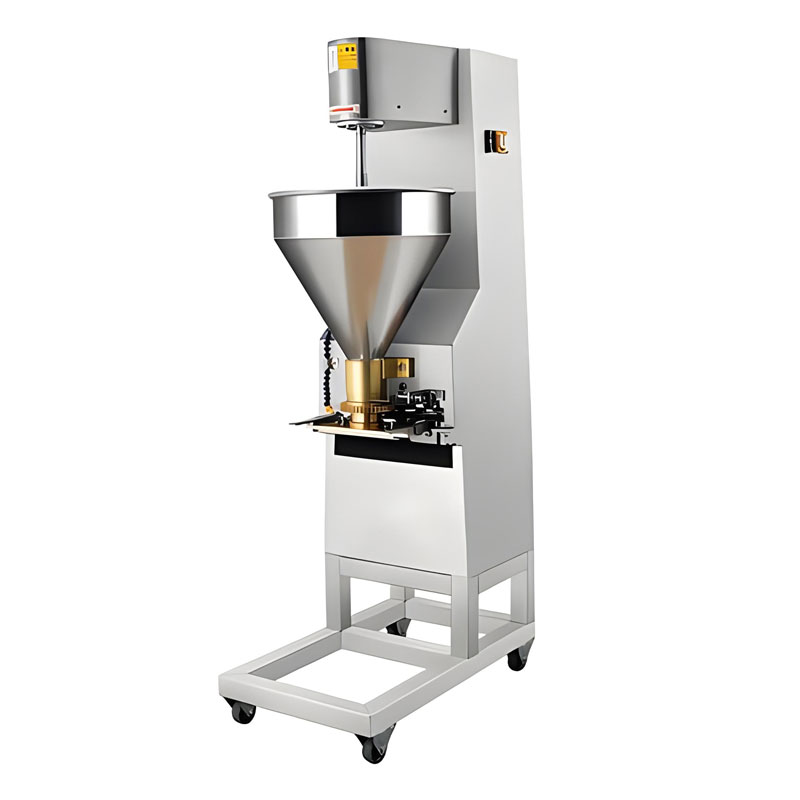
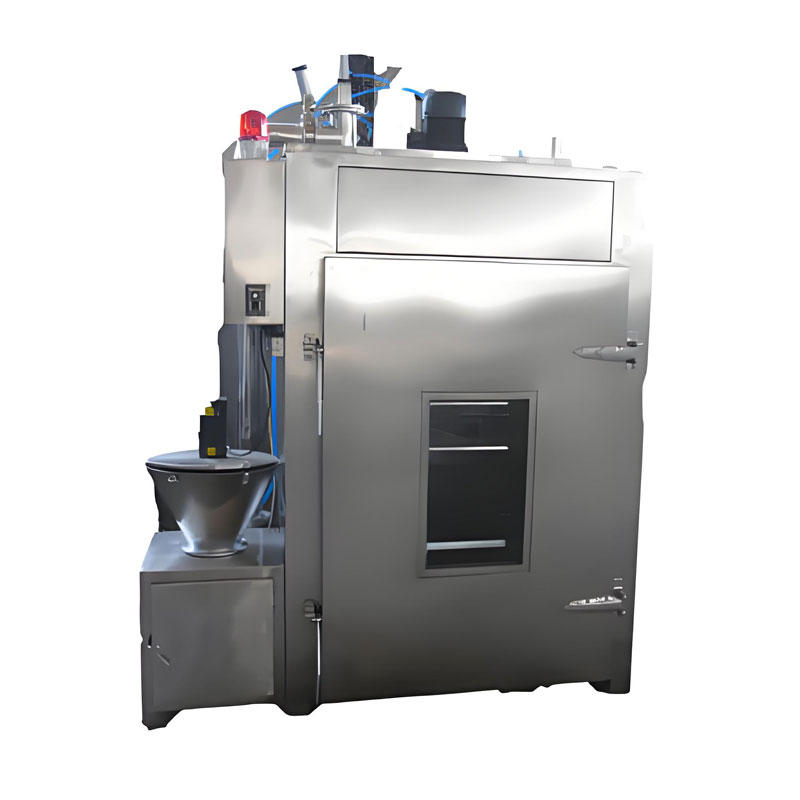
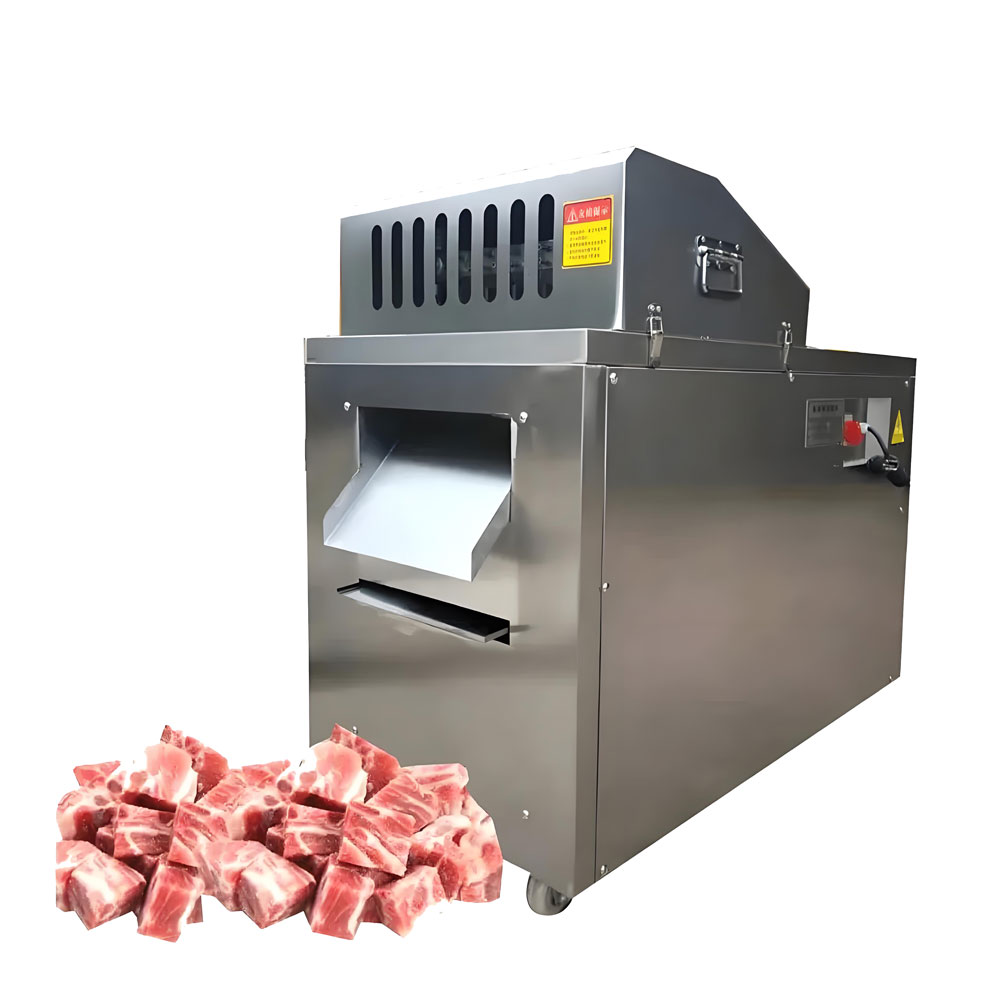
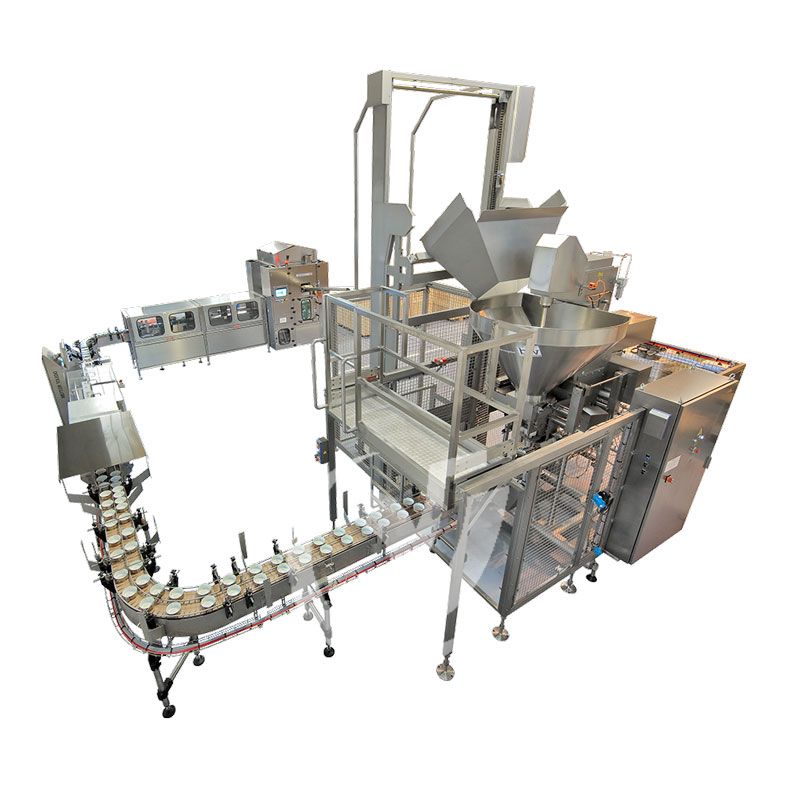

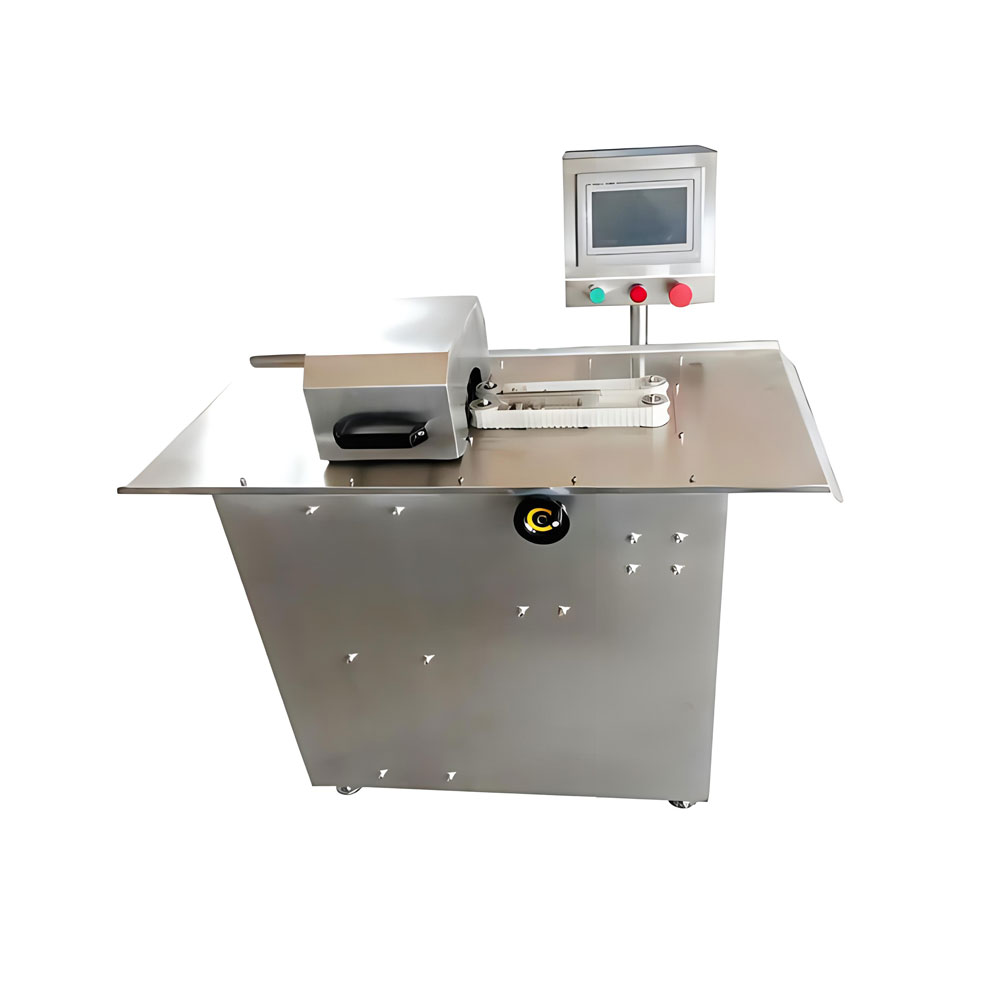
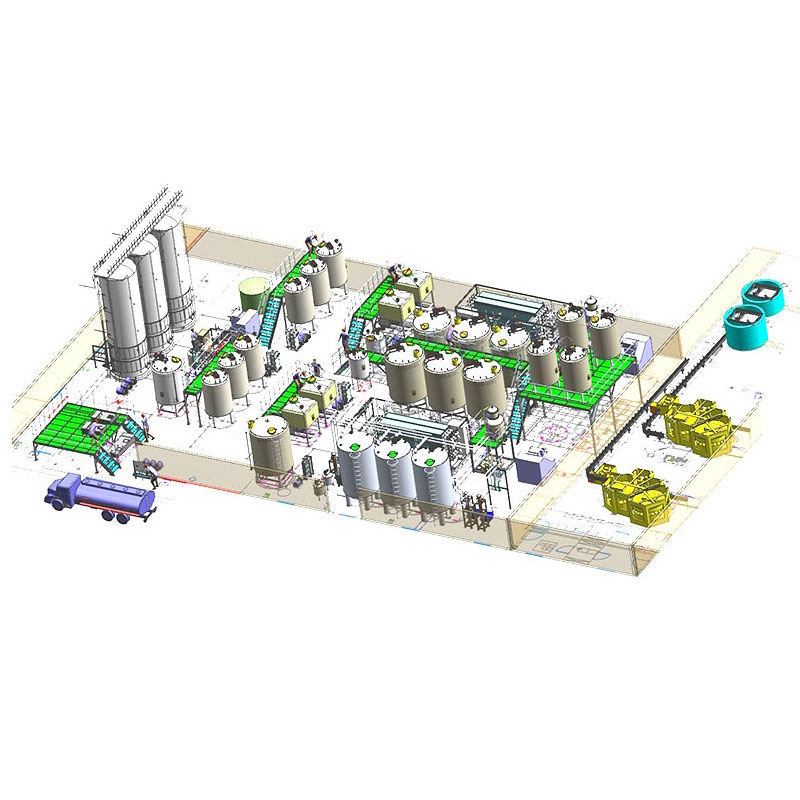
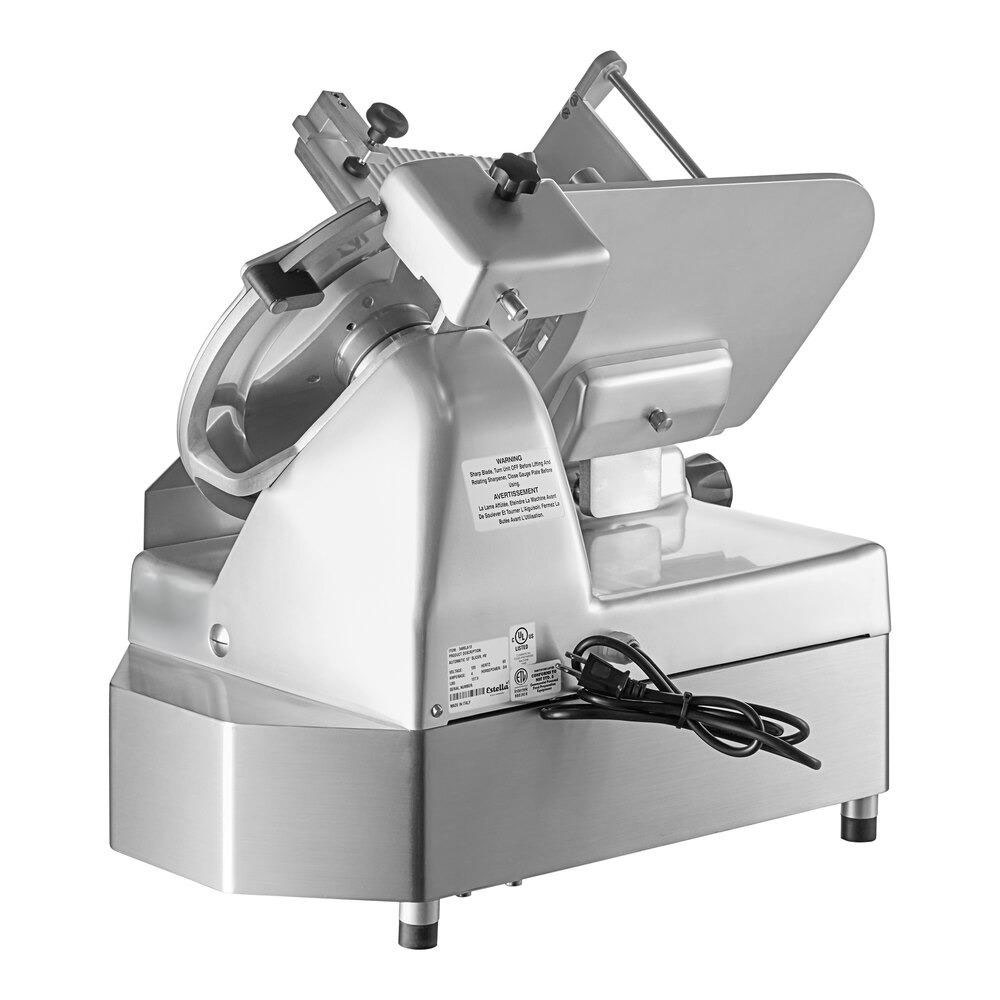
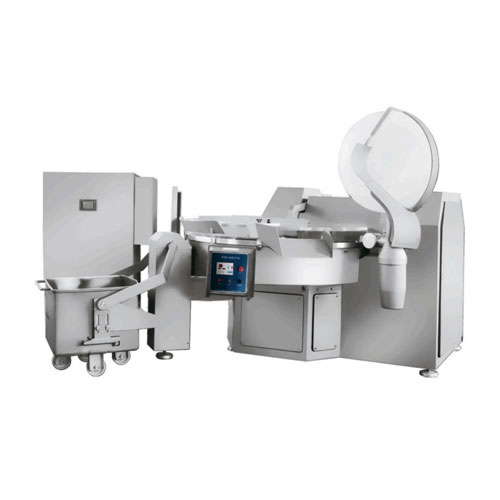
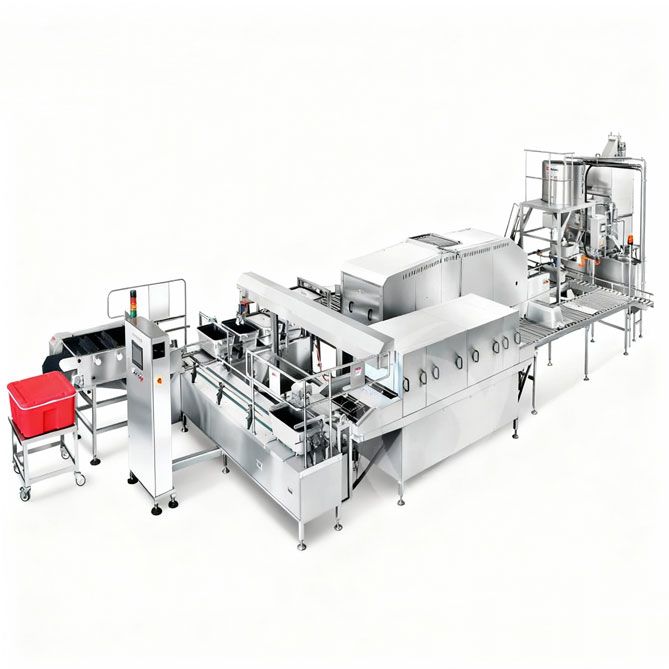
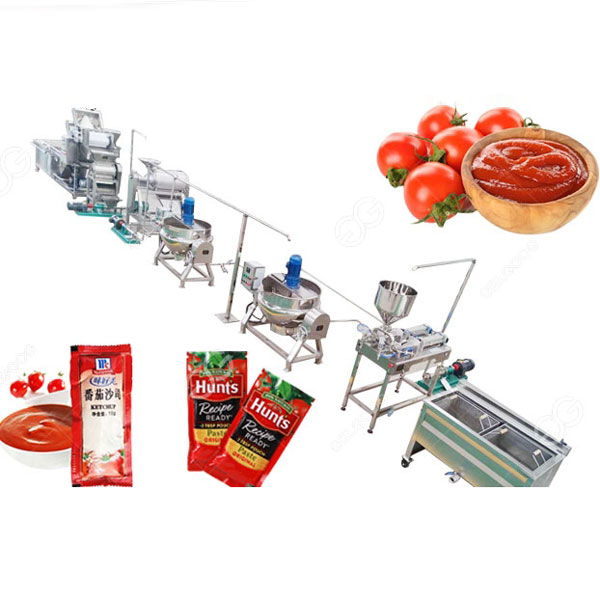 Small Scale Tomato Sauce Making Machine
Small Scale Tomato Sauce Making Machine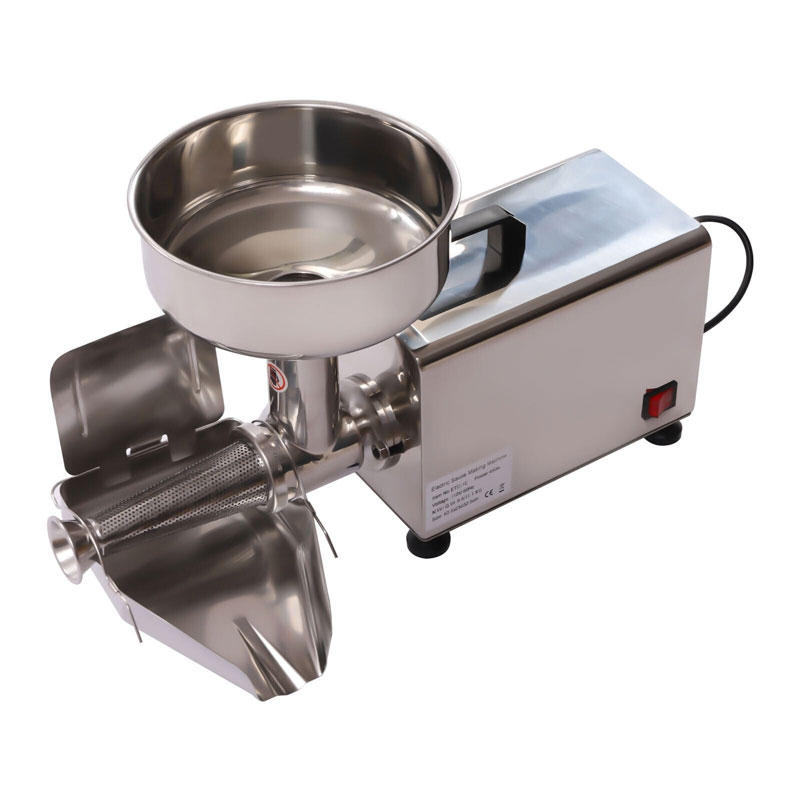 Tomato Sauce Milling Machine
Tomato Sauce Milling Machine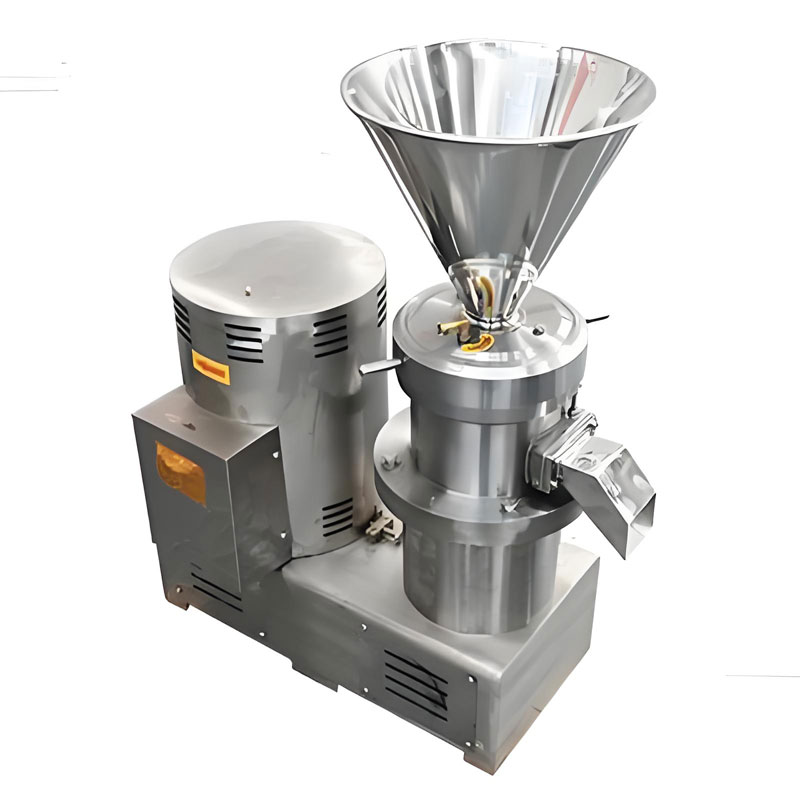 Tomato Sauce Grinding Machine
Tomato Sauce Grinding Machine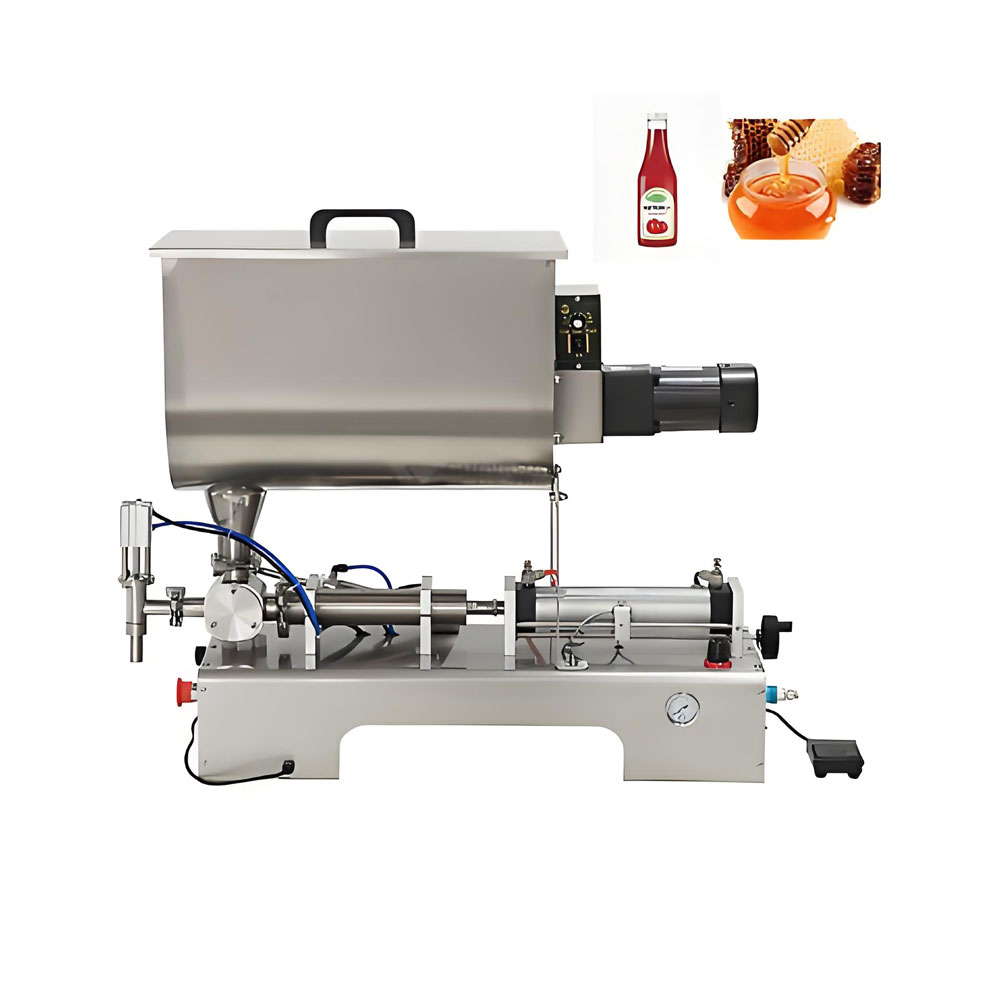 Sauce Filling Machine
Sauce Filling Machine
Ready to Get Started?